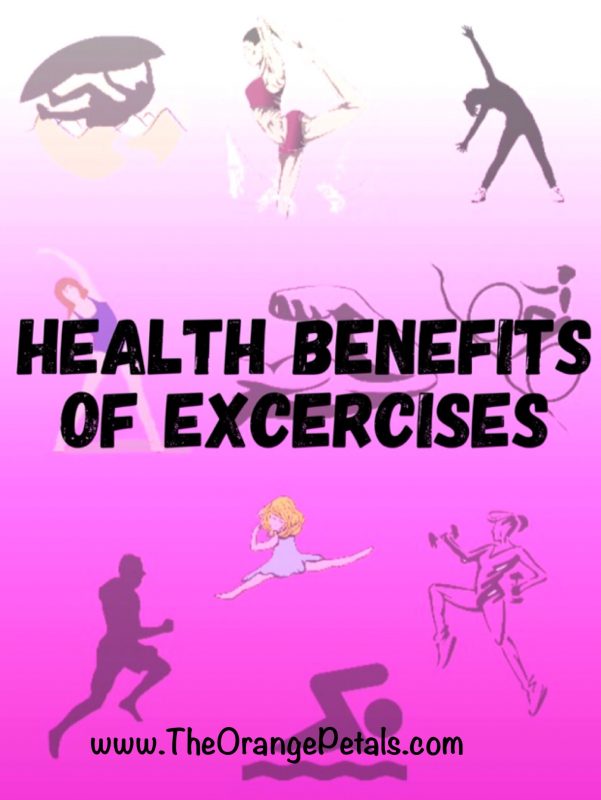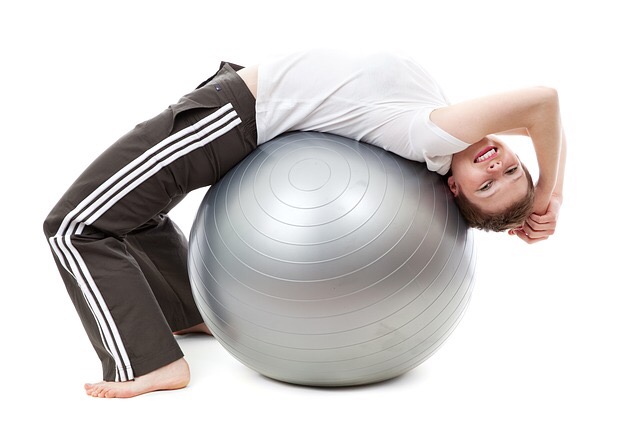Health Benefits of Excercise: Doing exercise regularly can help protect you from heart disease and stroke, high blood pressure, diabetes, obesity, etc., and can improve your mood and help you to manage stress as well. For this, you don’t need to do any hard excercises or doing workouts for hours together. Experts recommend that you do 20 to 30 minutes of aerobic activity three or more times a week and some type of muscle strengthening activity and stretching at least twice a week. Yes. That is enough to get the benefits of exercise.
However, if you cannot able to do these activities, then doing 30 minutes moderate physical activity five times a week is more than enough.
You can start your excercise with less strenuous activities like walking, jogging, climbing in steps without using lift etc at a comfortable pace. Beginning at a slow pace will allow you to become physically fit without straining your body. Once you are in better shape, you can gradually do more strenuous activity.
Health Benefits of Exercise
Health Benefits of excercise are tremendous. Let’s see the top most of them one by one.
Obesity: Physical activity helps to reduce body fat by building or preserving muscle mass and improving the body’s ability to use calories. When physical activity is combined with proper nutrition, it can help control weight and prevent obesity, a major risk factor for many diseases.
Improves mood and relieves stress: Regular physical activity can improve your mood and the way you feel about yourself. Researchers also have found that exercise is likely to reduce depression and anxiety and help you to better manage stress.
Heart Disease and Stroke: Daily physical activity can help prevent heart disease and stroke by strengthening your heart muscle, lowering your blood pressure, raising your high-density lipoprotein (HDL) levels (good cholesterol) and lowering low-density lipoprotein (LDL) levels (bad cholesterol), improving blood flow, and increasing your heart’s working capacity.
Diabetes: Regular exercising increases insulin sensitivity and glucose metabolism, which means the body’s cells can more efficiently transport glucose into the cells of the liver, muscle and tissues etc., thus strengthens and regulates body insulin production.
 Osteoporosis: Regular weight-bearing exercise promotes bone formation and may prevent many forms of bone loss associated with aging and prevents thinner bones and the risk of fracture.
Osteoporosis: Regular weight-bearing exercise promotes bone formation and may prevent many forms of bone loss associated with aging and prevents thinner bones and the risk of fracture.
Improves self confidence: Being physically fit by exercising can boost self-esteemand improve positive self-image. Regardless of weight, size, gender, or age, exercise can quickly elevate a person’s perception of his or her attractiveness, that is, self-worth. Studies show that, exercising improves self esteem of overweight kids.
Stimulates the brain: Studies shows that, regular workouts, stimulates the brain cells and helps you in better decision making, smarter thinking and improves memory as well.
Improved sleep: People who suffer from insomnia (sleep disorder disease), when start exercising, 5 times a week for 20 to 30 minutes decreases their sleep disorders and they can have sound sleep without any sleeping pills.
Better skin: Exercise also boosts circulation and the delivery of nutrients to your skin, helping to detoxify the body by removing toxins or poisons. As exercise boosts oxygen to the skin, it also helps increase the natural production of collagen, the connective tissue that plumps your skin. Your skin colour is also improved after exercise because of the increase in bloodflow.
High Blood Pressure: Regular physical activity can reduce blood pressure in those with high blood pressure levels. Physical activity also reduces body fatness, which is associated with high blood pressure.
Strengthens the muscle: For those People entering in 40 and 50’s, the muscle starts loosening and its strength is reduced. In order to maintain the muscle mass, it is must to do some physical exercising for atleast 20 minutes a day.
Reduces cancer risks: Physical activity and exercise are correlated with a lower incidence of colon cancer in men and women, and breast cancer in women. It seems that about 30–60 minutes of moderate to vigorous exercise per day is needed for this risk reduction, with higher levels of exercise showing even lower risk.
Sources:
- http://fitness.mercola.com/sites/fitness/archive/2013/09/20/exercise-health-benefits.aspx
- http://www2.gsu.edu/~wwwfit/benefits.html
- http://www.ideafit.com/fitness-library/benefits-of-exercise




Leave a Reply